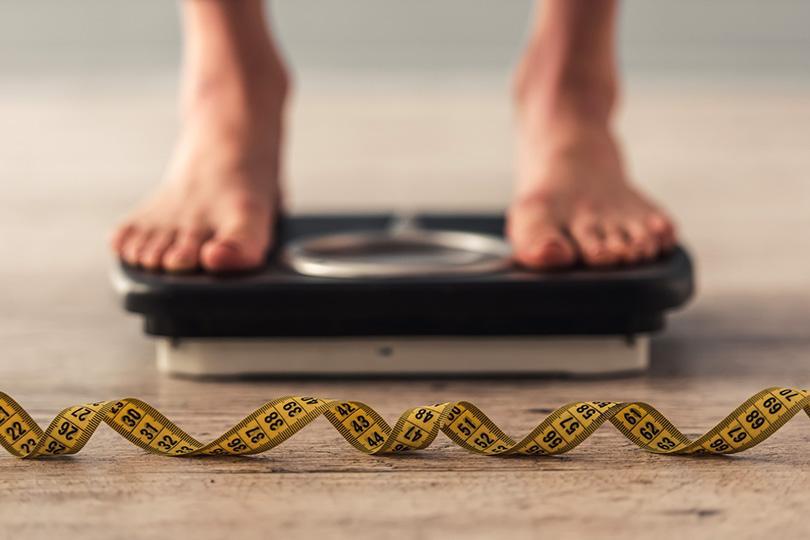Dubai, United Arab Emirates (CNN) - Want to lose weight by sleeping? So, try to extend your bedtime even more. This is the conclusion of a randomized trial in which overweight young men who slept less than six and a half hours a day were asked to try to sleep for eight and a half hours a night, for two weeks.
After the two-week period, many of these young adults had reduced food intake by an average of 270 calories per day, who extended their sleep time in a manner close to a healthy bedtime, according to the results of the study published Monday in the journal JAMA Internal Medicine.
The study showed that some participants reduced their calorie consumption to 500 calories per day.
You may also be interested in"What we found is like a game-changer for losing or maintaining weight," said study author Esra Tasali, assistant professor of medicine and director of the University of Chicago Sleep Research Center.
Prospectively, the researchers projected their findings and found that eating 270 fewer calories per day would reduce weight by 11.8 kilograms over 3 years, with little effort other than sleeping more.
You may also be interested inTasali noted that "a simple adjustment by increasing the sleep time, or maintaining the length of time so that the individual does not suffer from a lack of sleep, may have a significant impact on a healthy weight."
One of the study's strengths is that it was done in a real-world setting, rather than in a sleep lab, and objective urine tests were performed to measure calories, rather than relying on participants' memory to determine what they ate.
You may also be interested in"This is a very good study and answers an important question," said Dr. Bhanuprakash Kula, MD, a psychiatrist and neurologist in the Center for Sleep Medicine and Division of Addiction Medicine at the Mayo Clinic in Rochester, Minnesota, who was not involved in the study. The greater the amount of sleep time, the lower the calorie consumption, which leads to weight reduction,” noting that “if this study is extended, it is possible to discover more significant changes in weight.”


How does sleeping longer help you lose weight? One of the reasons is due to the effect of lack of sleep on two major hormones that control hunger and satiety, ghrelin and leptin.
Ghrelin stimulates hunger, and its secretion has been shown to increase with lack of sleep. As for leptin, it tells us how we feel full.
"It turns out that the hormone leptin decreases with lack of sleep. So when we suffer from a lack of sleep, this hormone is secreted in less quantity, and thus less impact on our appetite," Cola said.
You may also be interested inKristen Knutson, assistant professor of sleep and preventive medicine at Northwestern University School of Medicine, noted that hunger and cravings for carbohydrates not only affect people who are overweight, but that everyone who does not sleep properly increases weight. .
"Studies have observed an increase in appetite due to lack of sleep in people who are not overweight. Getting enough sleep has health benefits for everyone, regardless of body weight," Knutson added.
A lack of sleep also affects our food choices, which we find in the reward centers of the brain, which is the point at which we experience pleasant feelings that we want to repeat.
You may also be interested in"These reward centers in the brain become more active when you suffer from a lack of sleep, which increases the desire to eat carbohydrates, fast food, or eating more food in general," Tasali commented.
There is also the problem of insulin resistance, which is exacerbated by lack of sleep, and leads to weight gain.
"Several laboratory studies have shown that if you were to test a person with poor sleep in the morning compared to someone who slept well, you would see their pre-diabetes insulin resistance in the morning," Tasali said.
But, how hard did the participants have while extending bedtime into their life schedule? It wasn't difficult at all, Tasali said. Each person underwent an hour-long counseling session about their sleeping style.
She noted that the session "was very personal, focused on trying to review their lifestyles, work restrictions, family members, pets, children, and bedtime routines." "Then we talked about how to improve their sleep habits, such as putting electronics away from the sleeping area."
Sleep experts always recommend not approaching devices that emit blue light such as smartphones, laptops, TV, etc. 45 minutes before bedtime. Because blue light stops the secretion of melatonin, the hormone that the body produces at bedtime.
You may also be interested inThere are other tips related to bedtime, such as room temperature between 15 and 20 degrees Celsius, and not eating hot food and alcohol, as well as following soothing rituals that may include taking a warm bath, reading a book, listening to calm music, deep breathing, or exercising. Yoga, meditation, or light stretching exercises.
Tasali noted that she noticed a change after just one week of the two-week sleep improvement programme.
The author of the study explained that some of them told her, "I thought I would be less productive, if I spent more time in bed, how am I going to get all this work done?"
Kolla said that one of the weaknesses of the study was that it did not include people suffering from insomnia or other major sleep disorders that have the most impact on millions of people, stressing that people trying to lose weight should pay attention “to how much sleep they get. Avoid voluntary sleep deficiency. He will play an important role."